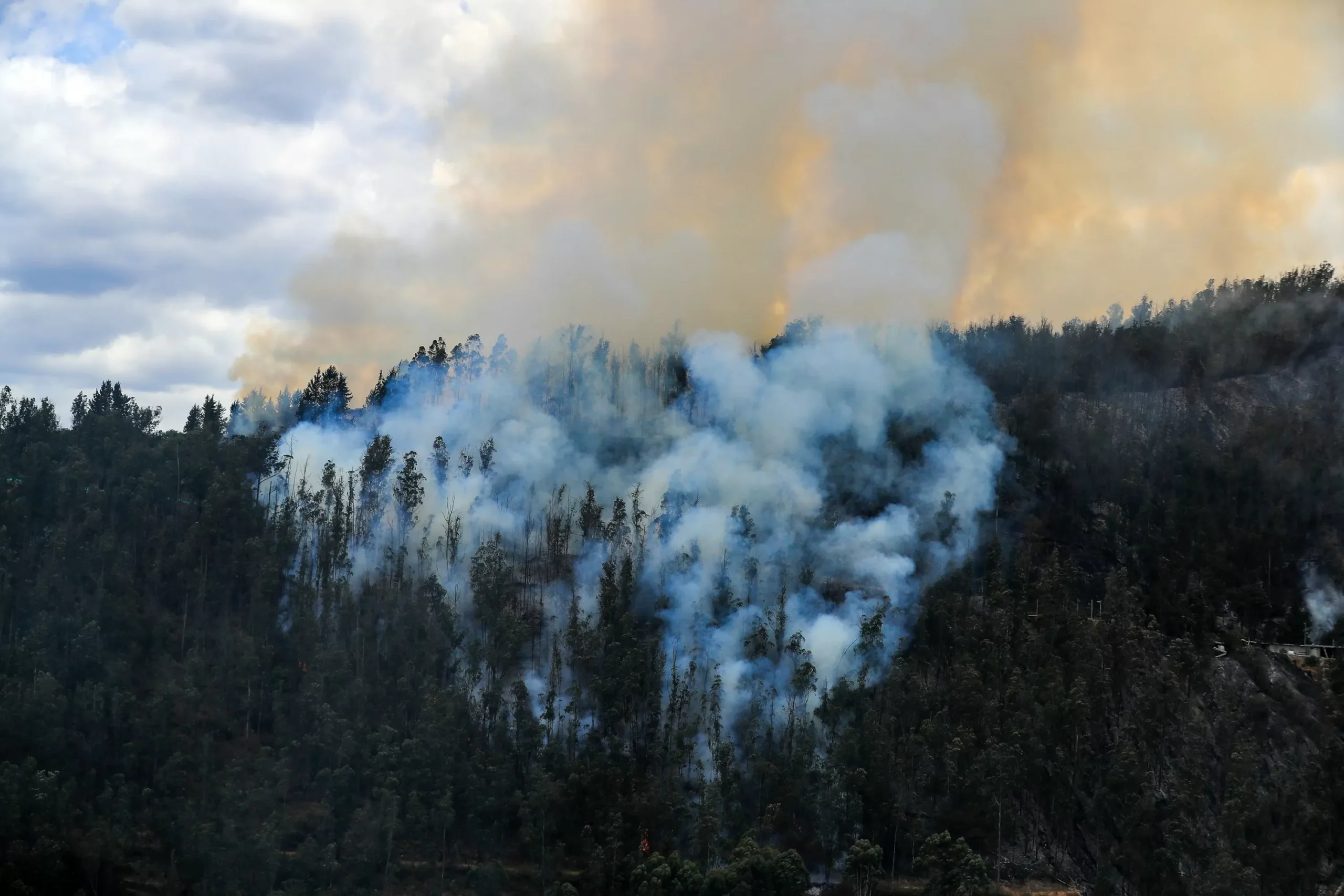Global warming is a pressing issue that is affecting our planet in more ways than one. One of the most alarming consequences of global warming is the rise in forest fires worldwide. According to two studies conducted by the Potsdam Institute for Climate Impact Research, this increase in forest fires is not only destroying our precious forests, but it is also posing a growing threat to millions due to the resulting air pollution.
The studies, which were published in the journal Earth’s Future, reveal that the number of forest fires has increased by 19.5% since 1979. This is a significant rise and is directly linked to the rise in global temperatures. As the Earth’s temperature continues to rise, it creates drier and warmer conditions, making it easier for fires to start and spread.
The consequences of these forest fires are far-reaching and devastating. Not only do they destroy the natural habitats of countless species of plants and animals, but they also release massive amounts of carbon dioxide into the atmosphere. This further exacerbates the issue of global warming, creating a vicious cycle that is difficult to break.
But perhaps the most alarming aspect of this rise in forest fires is the impact it has on air pollution. The smoke and ash from these fires contain harmful pollutants such as carbon monoxide, nitrogen oxides, and particulate matter, which can have serious health implications. These pollutants can cause respiratory problems, heart disease, and even premature death, especially for vulnerable groups such as children, the elderly, and those with pre-existing health conditions.
The studies by the Potsdam Institute have also highlighted the fact that this issue is not limited to a specific region or country. Forest fires are occurring all over the world, from the Amazon rainforest to the Arctic. This means that the impact of these fires is not confined to the areas where they occur, but it affects the entire planet. The smoke and pollutants from these fires can travel thousands of miles, affecting the air quality of even the most remote and unaffected regions.
The good news is that there are steps we can take to address this issue and mitigate its effects. The first and most crucial step is to address the root cause of these fires – global warming. We must take immediate and concerted action to reduce our carbon footprint and limit the rise in global temperatures. This can be achieved through measures such as reducing our reliance on fossil fuels, promoting renewable energy sources, and implementing sustainable practices in our daily lives.
In addition, we must also invest in fire prevention and management strategies. This includes measures such as creating fire breaks, clearing out dry and dead vegetation, and implementing controlled burns. These strategies can help reduce the risk of fires starting and spreading, ultimately protecting our forests and reducing air pollution.
Furthermore, it is essential to have effective emergency response plans in place to combat forest fires when they do occur. This includes having well-trained firefighters, adequate resources and equipment, and efficient communication and coordination between agencies and countries.
But the responsibility does not lie solely with governments and organizations. As individuals, we can also play a crucial role in addressing this issue. We can make small changes in our daily lives, such as reducing our energy consumption, using public transportation or carpooling, and supporting sustainable businesses. We can also educate ourselves and others about the impact of global warming and the importance of protecting our forests.
The rise in forest fires worldwide is a clear indication that we need to take urgent action to address global warming. If we do not act now, the consequences will be catastrophic for our planet and its inhabitants. It is time for all of us to come together and take responsibility for our actions. Let us work towards a sustainable future where our forests are protected, and the air we breathe is clean and healthy. Together, we can make a positive impact and ensure a better tomorrow for generations to come.








